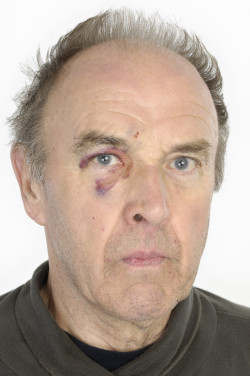Top Class Actions’s website and social media posts use affiliate links. If you make a purchase using such links, we may receive a commission, but it will not result in any additional charges to you. Please review our Affiliate Link Disclosure for more information.

Watch For Warning Signs
One of the things you can do is to be vigilant. Seniors may not come forward and report abuse, since they may lack the mental facilities to do so. Worse, many abusers are people in positions of trust, making it even difficult for seniors to report. Sometimes, elders need someone to come forward on their behalf. To do this, you need to watch for various signs of trouble.
Physical Abuse
In many cases, you can see signs of elder abuse, even if a senior is reluctant to come forward. Physical abuse can often leave very obvious signs, like injuries. If a senior has unexplained bruises, welts or scars, particularly symmetrical ones, this is a major sign of abuse. More serious injuries like broken bones or dislocations can also represent abuse. You may also see bruising on wrists and ankles, which could mean that an elder has been forcibly restrained.
Sexual Abuse
Sexual abuse against the elderly also has some characteristic signs. You may see signs like torn underclothes, bruising around the breasts or genitals, and unexplained bleeding from the anus or vagina. STDs and other infections of the sexual organs can also warn of sexual abuse.
Neglect
Neglect is another major form of senior abuse. When a bedridden senior is not properly cared for, bedsores can form. While the occasional bedsore might not signify abuse, chronic, recurring bed sores can. You should also look at seniors’ prescriptions. If there’s more medication left than the prescription says there should be, someone might not be giving the elder their medication.
Exploitation
Various forms of exploitation also fall under the category of senior abuse. If a senior cannot explain where their money has gone, they may have a caregiver stealing it. Similarly, if a senior’s prescriptions are depleted long before the refill, someone could be stealing their meds.
Caretaker Behavior
More general signs of abuse include behaviors on the parts of the caretakers, like those employed at nursing homes, assisted living facilities and other long-term senior care centers. If they do not let you see the elder, or require “warning” before you visit, you should be concerned. Additionally, if caretakers do not let you see the senior alone, you should be concerned.
Take Action Now
If you have reason to believe that a senior in your life is being abused, you should take action immediately. You can start by visiting the Elder Abuse, Nursing Home Neglect Class Action Lawsuit Investigation. Here, you can enter information about your situation for a free legal review by a trained elder abuse lawyer. Any consultation you receive is completely free of charge, and could be the first step toward helping your loved one get the compensation they deserve.
ATTORNEY ADVERTISING
Top Class Actions is a Proud Member of the American Bar Association
LEGAL INFORMATION IS NOT LEGAL ADVICE
Top Class Actions Legal Statement
©2008 – 2024 Top Class Actions® LLC
Various Trademarks held by their respective owners
This website is not intended for viewing or usage by European Union citizens.














